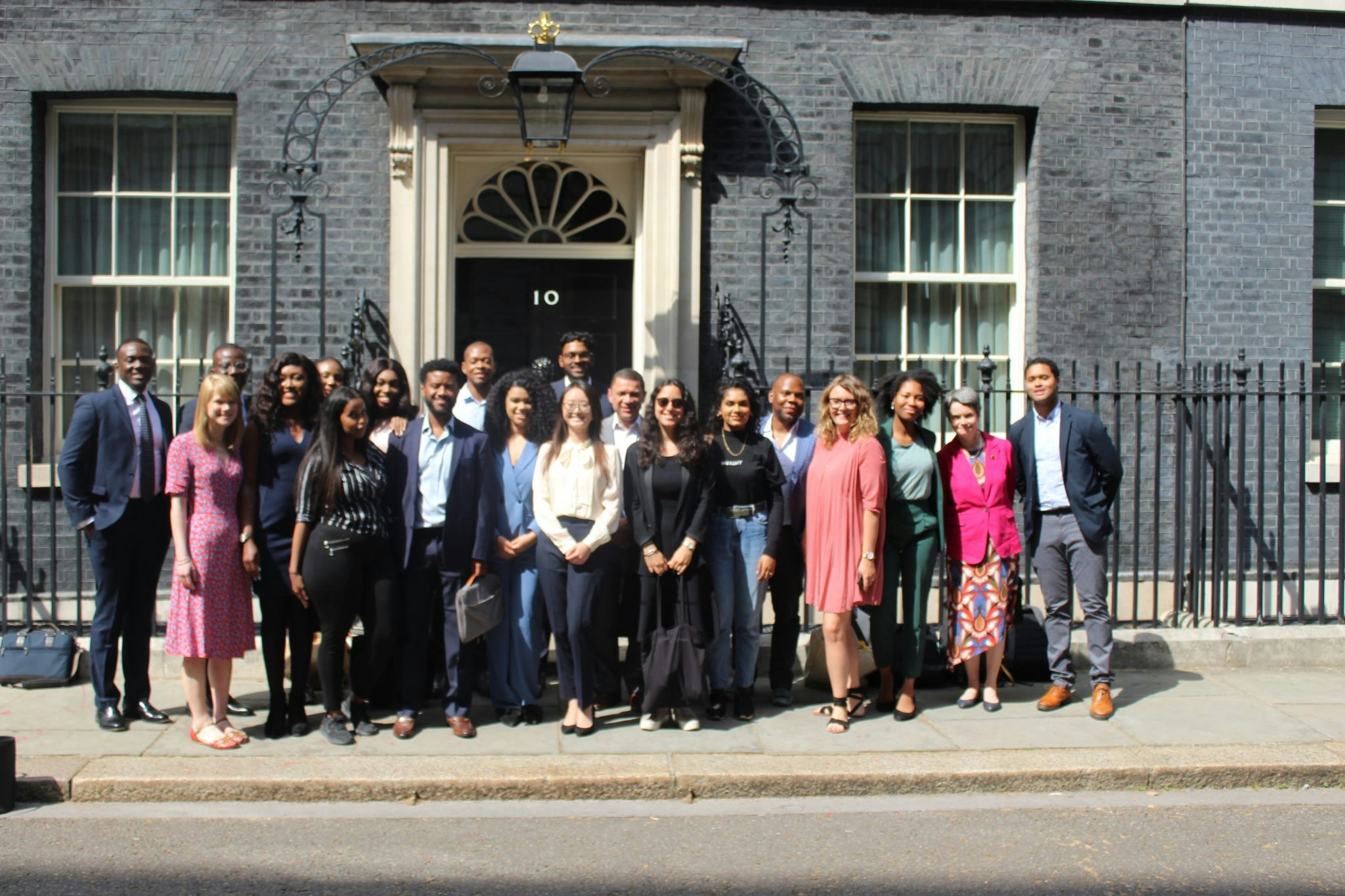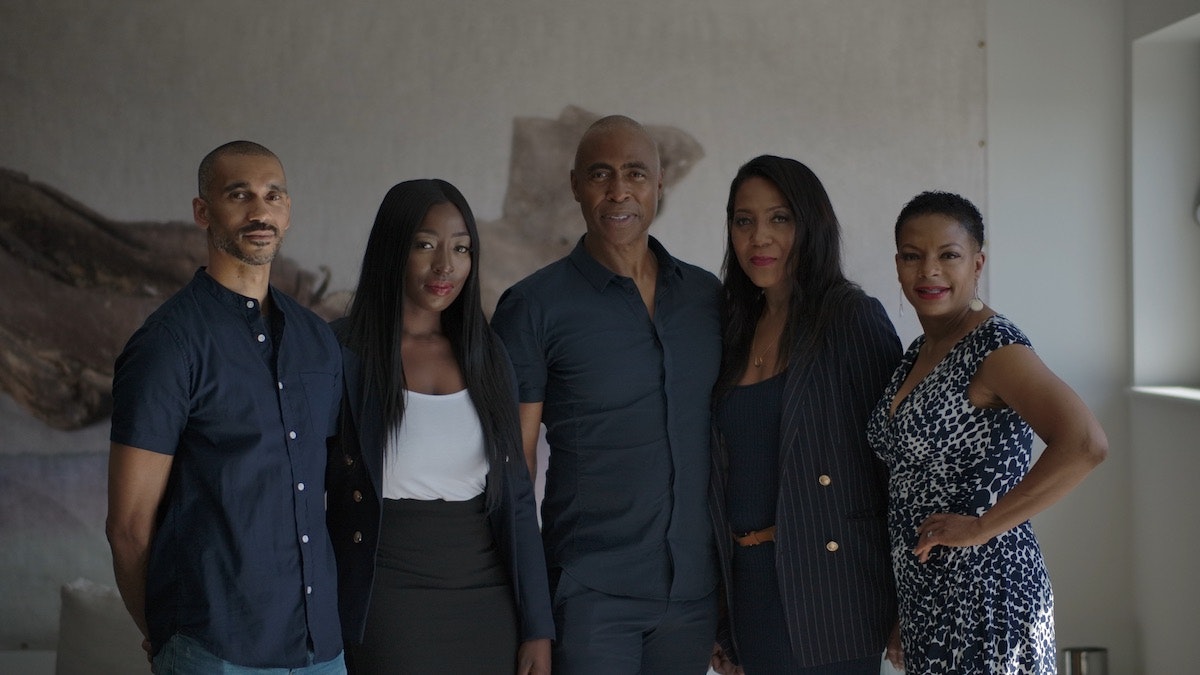I’ve worked in tech in the UK for over six years, and for five of those I was the only Black person in the organisations I worked in. I started thinking about how I would have liked those companies to approach this moment, the frank conversations I would have liked to be able to have.
Black employees often feel unable to voice the racism and microaggressions they encounter in the workplace, worried about personal backlash and the negative impact on their careers.
As a Black woman especially, you’re painted as aggressive and difficult. You’re told you are not making enough effort to ‘fit into the culture’. You might end up getting fired for a flimsy reason and then have to fight to prove you were discriminated against.
We need to dismantle workplace cultures that silence Black people
The resistance we face as Black people when we speak out about our experiences of racism is silencing and harms us all. It suppresses opportunities to create meaningful improvements for us in the environments where we spend significant portions of our waking days.
There is the impression, I think, that we excessively search for instances of racism when the reality is that we spotlight only a fraction of our experience. I’ve had people attempt to touch my hair without my permission or disparage Black people “jokingly”. I’ve had colleagues play “devil’s advocate” and seek to engage me in a “debate” about how white middle class males are the most discriminated group. When I’ve called this out, I’ve received a mixture of responses that serve to minimise this behaviour: “Are you sure that’s racist?” and “I’m sure they didn’t mean any harm by it.” “Aren’t you being a little bit sensitive?”
Speaking out about racism and microaggressions in an environment where you’re the only or one of a few minorities is very difficult. There may be no one else to back you up, no one else to express their own discomfort. There may be no one else who understands why something is problematic. The burden will rest on you to a) call out the racism, b) educate everyone on why it’s racist (i.e. prove it was racist), and c) convince everyone to change how they talk about or handle certain issues.
When you repeatedly call out racism you start to develop a reputation for being “difficult” or “confrontational”.
What I’ve experienced and seen happen to other Black people is that when you repeatedly call out racism you start to develop a reputation for being “difficult” or “confrontational”. People start to feel that you’re not a good “culture fit”, which is a coded way of saying you’re making people uncomfortable because you keep bringing up race.
On LinkedIn I saw a man ask: “Can we talk about something else now?” The idea that (anti) racism is a discussion topic is offensive. In calling out racism we are not seeking to open up an intellectual debate, we are seeking to chart a roadmap for creating structural and cultural change.
Why are you not outraged, too?
In the rush towards proclamations and premature absolution, I hope this point doesn’t get lost. Whether you’re a leader within an organisation or an intern, it’s important for you to be willing to engage with racism in a non-superficial way, to educate yourself, to reflect, to understand the complexity of these issues and to sit with that. It is important for you to reflect on how you have contributed to white supremacy. How your technology contributes to white supremacy.
When your Black colleague brings up an issue they are facing or have faced, the very least you can do is listen.
Part of the desire to not dwell on racism is because it’s uncomfortable. And it is. For you. For us it is life threatening at worst and an exhausting added burden at best. So when your Black colleague brings up an issue they are facing or have faced, the very least you can do is listen.
The ‘I’ in D&I requires a deeper understanding of the experiences of Black people
In the three weeks after George Floyd’s brutal murder, I saw a flood of organisations and individuals rush to denounce racism. I also noted a marked silence from many companies in my network, including places I have previously worked.
During that time, I existed in a depressive state. I experienced intense emotional pain, struggled to get out of bed, had no desire to eat. I showed up to meetings, answered emails, interviewed successfully for a job. But I was not ok. It took a medical practitioner to point out that I was experiencing grief and PTSD from my own experiences of racism.
I was not alone in this. I spoke with several Black colleagues, friends and family — they were struggling intensely, too. I video called a friend at work and watched helplessly as she broke down in tears then recomposed herself to return to work.
Did your organisation check if its Black employees were ok?
Did your organisation check if its Black employees were ok? (Does your organisation have Black employees to check on at all?) Did you have the structures in place to support them if they were not?
Some companies put out statements about George Floyd, police brutality and anti-racism but didn’t check in with their Black employees at all. It could have been as simple as a private conversation where a line manager asked “Are you ok? Is there any support you need from me/us right now?”
The inclusion piece of D&I should not be overlooked. It’s not enough to have Black employees in place when they feel isolated or unable to speak about the reality of their experience at work, especially when they are struggling. Not all of them will want support from work and those who have faced racism and microaggressions at work will not feel comfortable being vulnerable and open — but there are many who needed support and did not receive it.
Where do we go from here?
The point here is not to get stuck in a spiral of guilt. That serves no one. The point is to gain awareness of the issues that exist and make corrections.
It starts with accepting that the way you go about things, given the system you exist in, excludes people. Minorities have not been at the table historically. They may not be at the table now, depending on where you are. Therefore, you must go out of your way to look for instances of inequality and exclusion and correct for them intentionally.
You must go out of your way to look for instances of inequality and exclusion and correct for them intentionally.
Two major things you can do: make the hire, send the wire. Stop hiring practices that favour overconfident white men. A company I know hired the person who was most persistent, who literally turned up at the door after he was rejected and demanded his application be reconsidered. Most women and minorities will not do that. It’s not enough to say you advocate for D&I — your actions, hiring practices, internal culture and company leadership need to reflect that.
Investors must put their money where their mouth is. Commit impactful capital to investing in Black founders and emerging venture fund managers. Black founders are particularly over-mentored and under-funded. A key missing piece is the friends and family round that many Black founders struggle to access given the socio-economic realities in the Black community. An investor I spoke to recently lamented the lack of a solid pipeline of startups with diverse founders. It’s not going to miraculously appear. Invest early and meaningfully in creating your future diverse pipeline.
Shift diversity from a nice-to-have to a must-have. Make it a core business function. Commit resources to it like a core business function. (Some potential partners for that change-making process: YSYS, Foundervine, BYP Network, Color in Tech, 10x10VC, Hustle Crew)
Hold each other accountable. When you walk into a room or sit at a table, ask: “Why is there no diversity here? What are we doing to change that? How and when will we invest money into making change?” When someone is racist or discriminatory, call them out. Every single time.
When someone is racist or discriminatory, call them out. Every single time.
It’s important for leaders to be public about their action commitments. To speak publicly about diversity and inclusion, to speak out publicly against racism. VC analyst Joshua Olusanya powerfully articulates why it’s so important for the startup ecosystem to be more vocally anti-racist in this opinion piece.
Reflect on the language you use. On a panel about diversity last week the host referred to a Black panellist as “someone like you”. For the avoidance of doubt, you can say Black people. In fact, it’s important to say Black people. Not BAME, not people of colour: Black.
It’s important to move beyond lazy and obfuscating statements like “I don’t see colour.” If you refuse to see colour, you refuse to see the inequality that occurs in a white supremacist system. You need to “see colour” to measure and manage diversity in organisations. It is necessary for asking questions like: how many Black people are in this organisation and how many of them are in leadership positions?
Finally, as an ecosystem, we need to avoid the disproportionate burden placed on Black founders, investors and employees to educate others. A lot of anti-racism education has been published and compiled on the internet — it is a simple Google search away. Paying this minority tax takes away from the other great work we are doing and want to do. And when you do engage Black people to educate on anti-racism and D&I, pay them. This is work.
Would you like to write for us as a 'secret columnist'? Pitch an idea, in confidence, to Amy (amy@sifted.eu).
* This article was originally published stylising "Black" in lower case. Sifted's style is now to capitalise Black in a racial, ethnic or cultural sense, and the article has been edited accordingly.


